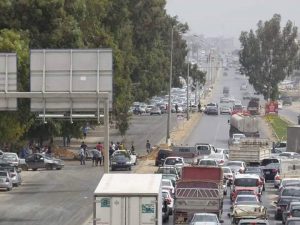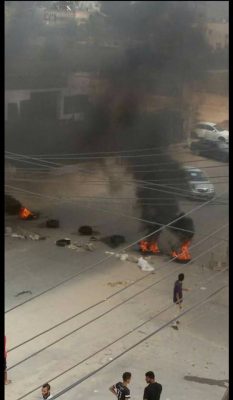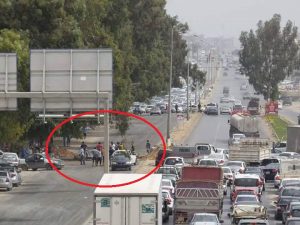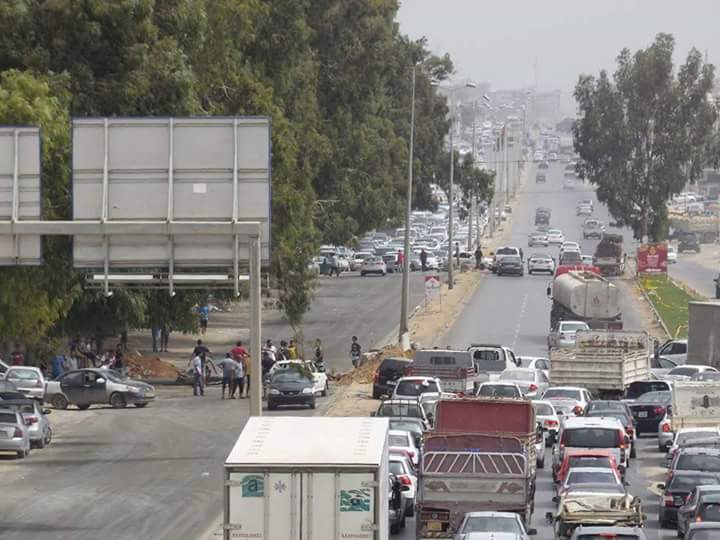By Sami Zaptia.

London, 19 September 2016:
At a press conference held in Tripoli on Sunday, the General Electricity Company of Libya (GECOL) revealed that it had reached an agreement with the Mayors of the Greater Tripoli Municipalities that organized power cuts would be limited to a maximum of six hours.
GECOL Deputy Operations Manager Mahmoud Wirfaly said at the conference that it was agreed that power cuts organized by GECOL would now be enforced equally on all areas of the capital.
The announcement came on the back of road closures and the burning of tyres by youth across the capital since Thursday in anger and protest at the very long hours of power cuts forced in the city.
Moreover, there is the perception that other parts of Libya are experiencing fewer power cuts and that some specific areas within Tripoli are experiencing very little power cuts due to militia coercion.

On Thursday, Sug il Juma youth closed off the road leading to Mitiga airport after what they said were regular 12-hour power cuts. There were numerous other road closures, including Tripoli’s main east-west motorway. Salah-al-Deen and Zanata also reported 12-hours of power cuts and Zawiet al-Dahmani and Tajura, for example, reported 9 hours of power cuts.
The Faiez Serraj Presidency Council/Government of National Accord (PC/GNA) was also reported to have held a meeting on Sunday evening with a number of Municipality leaders of Greater Tripoli as well as adjoining towns and cities to discuss the issue of power cuts.
At the press conference, Wirfaly admitted that enforced power cuts were indeed concentrated on the capital Tripoli. He revealed that there is a proposal that Tripoli gets its own power station at Bir Sta Milad.
Wirfaly said that some power stations were out of service and some of these would be coming on line soon to help reduce power cuts. Coincidently, GECOL announced on Sunday that the fourth unit at Ruwais power station had come back on line.
The GECOL Deputy Operations Manager said that on average his company has a power generation deficit of about 1,600 Mega Watts. This deficit has forced GECOL to enforce regional power cuts. He also admitted that the late payment of salaries to GECOL employees was contributing to the power cuts.

It will be recalled that GECOL employees had taken part in a number of demonstrations in August due to the late payment of their salaries. During a one-day strike in Tripoli last month, they had threatened to go on an indefinite strike, saying they had not been paid since March.
In a thinly veiled swipe, Wirfaly also pointed out that GECOL was unable to obtain foreign currency Letters of Credit from the Central Bank of Libya in order to import needed spare parts. He also pointed out that very few Libyans were bothering to pay their electricity bills which was adding to the poor financial state of GECOL.
It is worth noting that since the arrival of Faiez Serraj and his UN-brokered and internationally-backed PC/GNA, power cuts have at best remained on the same level. Despite promises to achieve ‘’quick wins’’ the PC/GNA has failed to improve power supplies.
In July this year, the Presidency Council fired the entire GECOL board on the grounds that it had failed to stop the power cuts. To date there has been no notable difference in power supplies.









